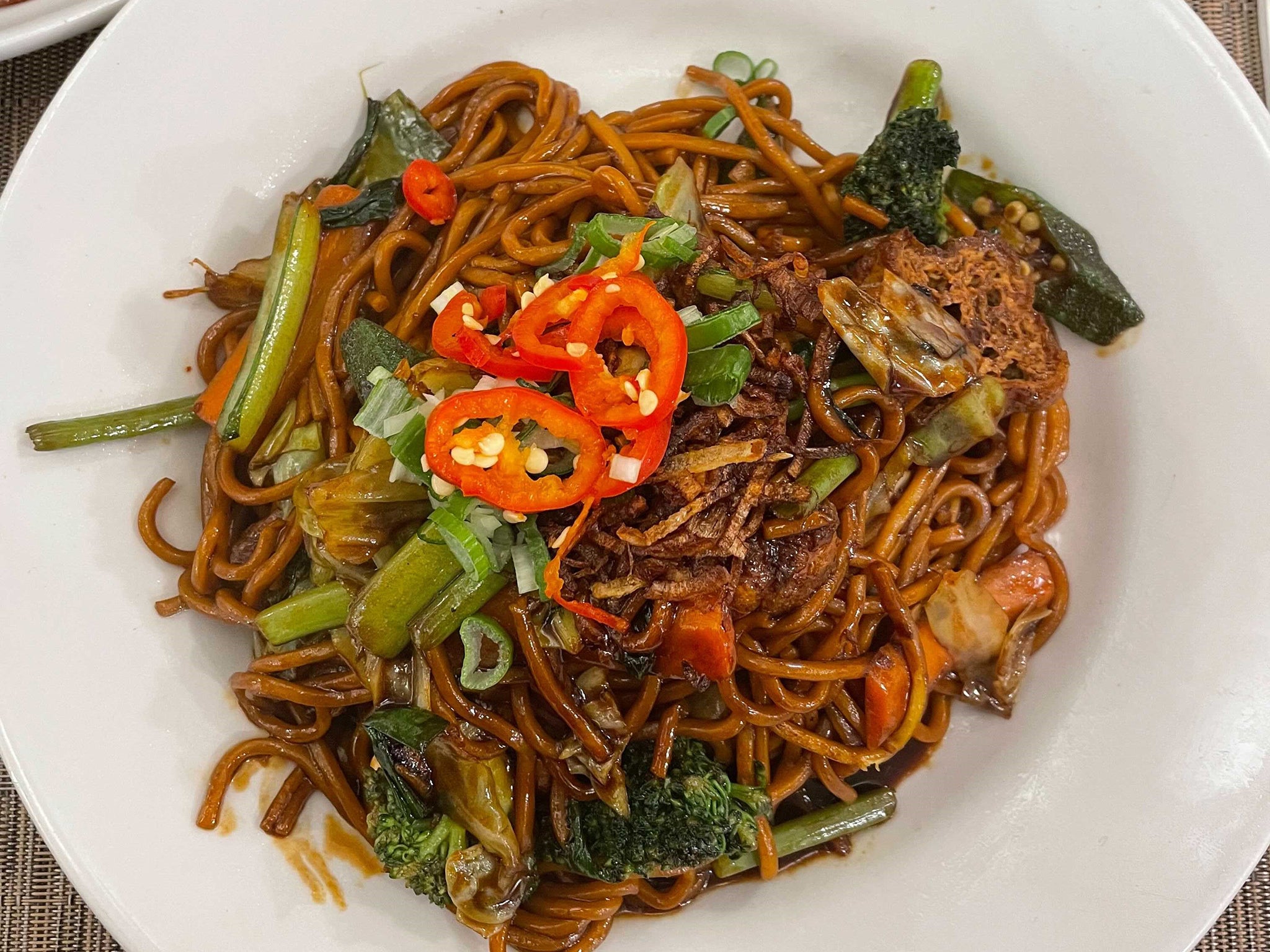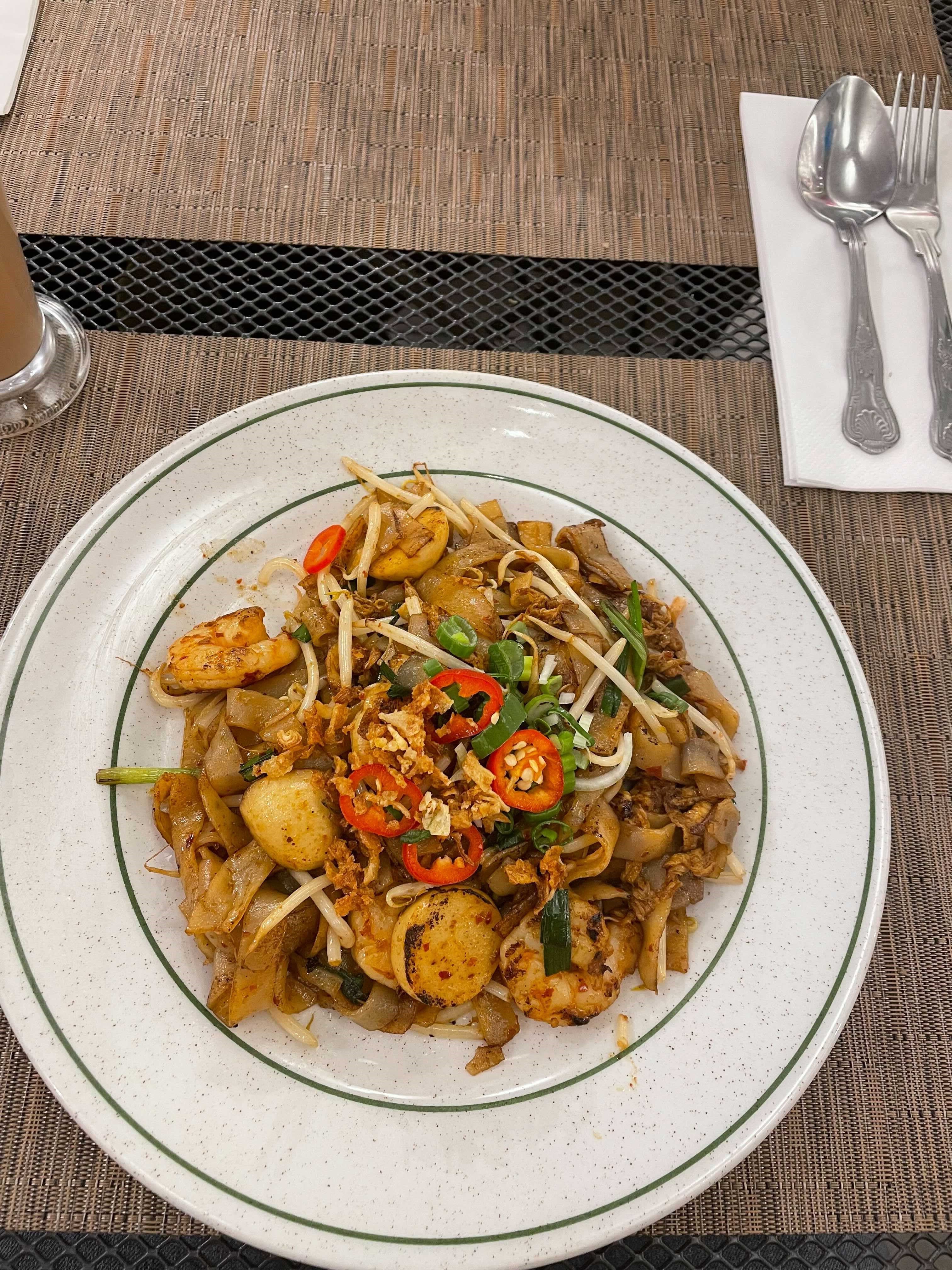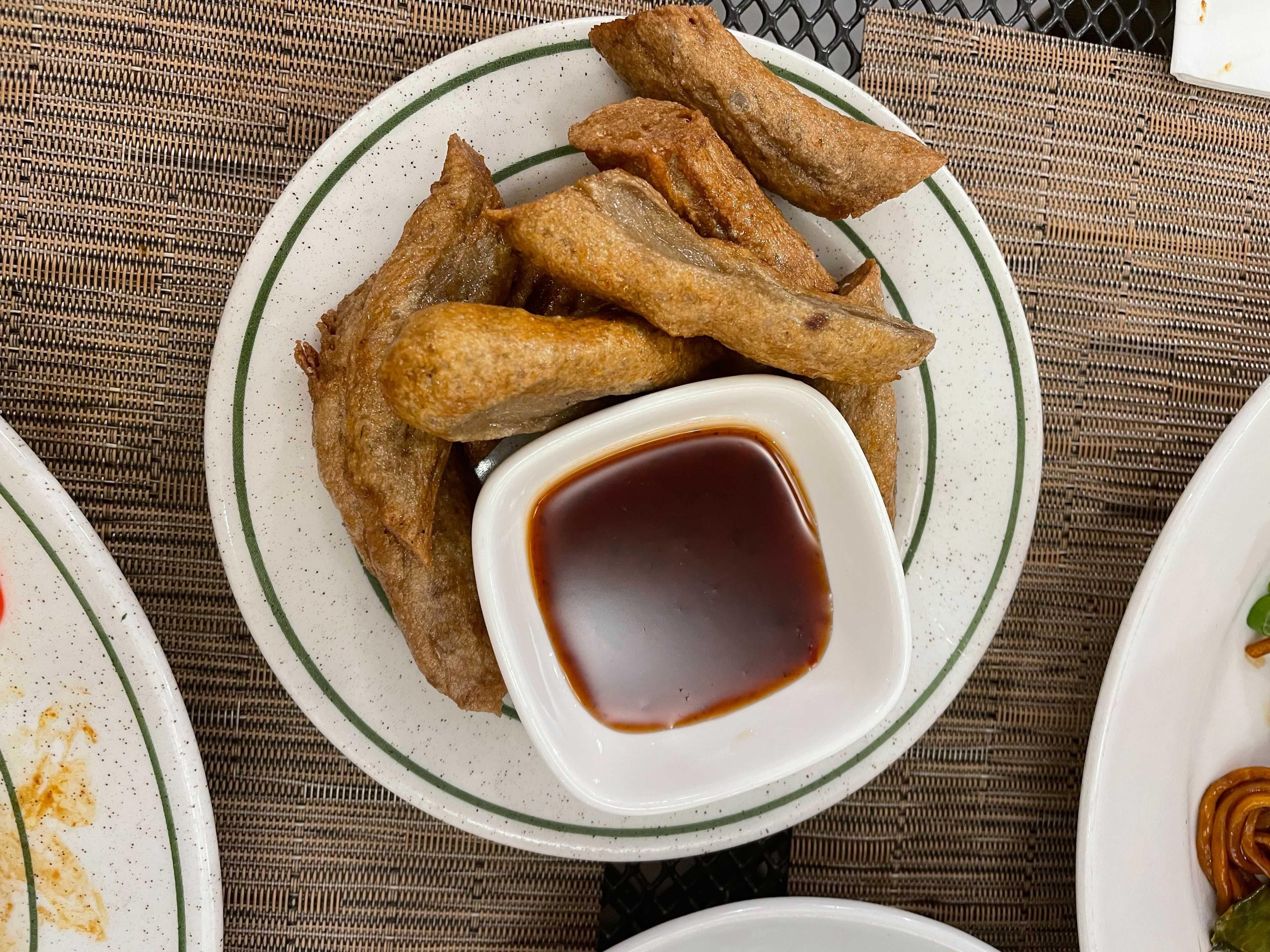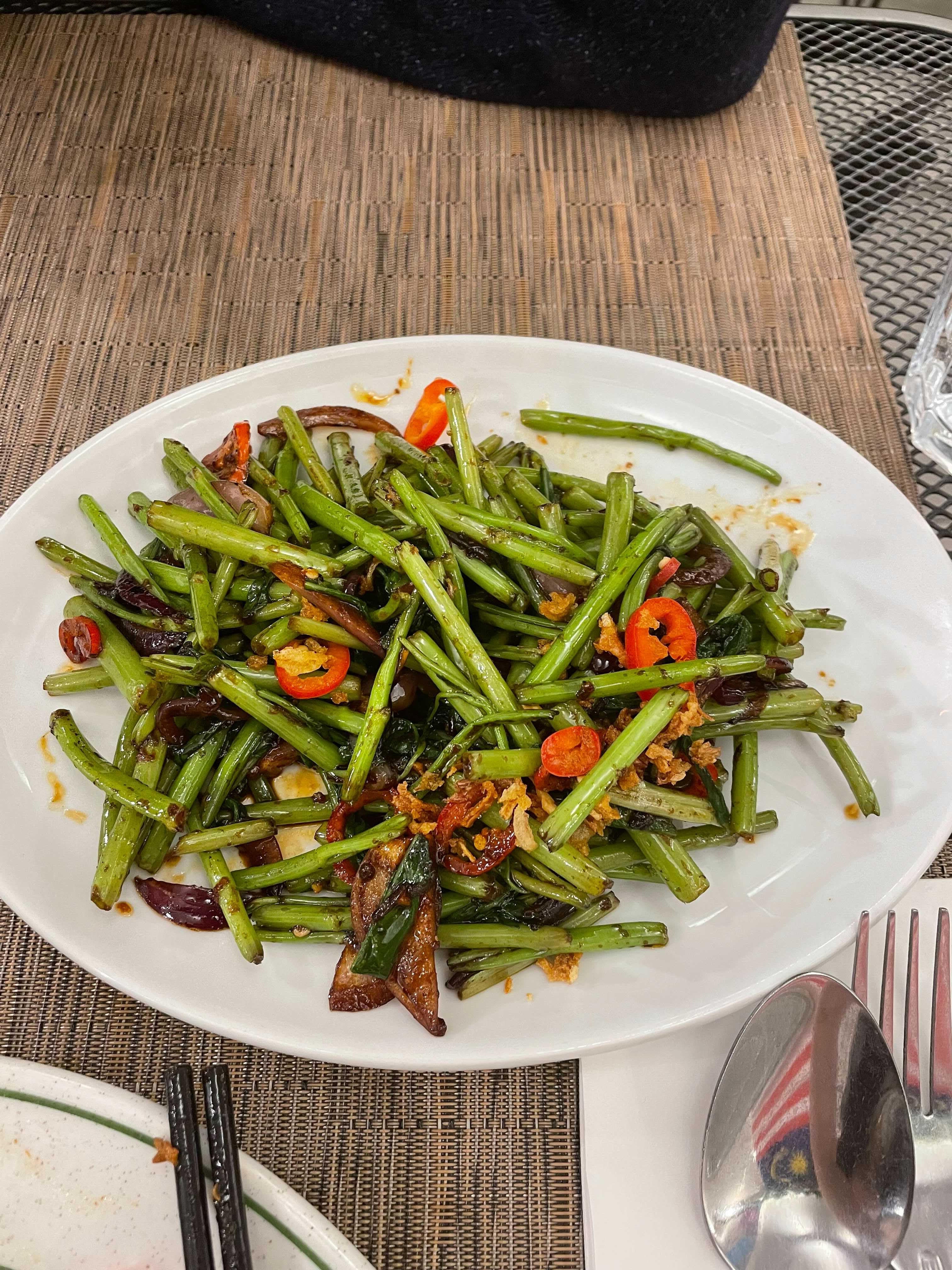Putera Puteri, Bayswater: A perfect balm for the homesick Malaysian
Kate Ng has been on the hunt for an authentic taste of home since she moved to London. Has she finally found it at this hidden gem?


Your support helps us to tell the story
From reproductive rights to climate change to Big Tech, The Independent is on the ground when the story is developing. Whether it's investigating the financials of Elon Musk's pro-Trump PAC or producing our latest documentary, 'The A Word', which shines a light on the American women fighting for reproductive rights, we know how important it is to parse out the facts from the messaging.
At such a critical moment in US history, we need reporters on the ground. Your donation allows us to keep sending journalists to speak to both sides of the story.
The Independent is trusted by Americans across the entire political spectrum. And unlike many other quality news outlets, we choose not to lock Americans out of our reporting and analysis with paywalls. We believe quality journalism should be available to everyone, paid for by those who can afford it.
Your support makes all the difference.Ever since I moved to London two years ago, I’ve been on a hunt. In nearly every new or previously unvisited Malaysian restaurant I come across, I order one thing. What I’m looking for is an exact copy of a certain dish beloved by nearly all Malaysians (and anyone who has the immense privilege of tasting it).
This dish is called char kuey teow. It’s a fried flat noodle dish that is hugely popular in Malaysia and Singapore and comes in a variety of versions. But in my humble opinion, the best is found on the island of Penang, Malaysia, where hawker stall cooks have perfected the art of “wok hei”.
Char kuey teow typically contains prawns, beansprouts, chives and eggs. The versions I enjoy the most are non-halal, cooked with pork lard and Chinese lap cheong sausage, but halal versions that omit those ingredients are popular too.
However, it’s the “wok hei” that is the most highly-prized flavour that I’ve found is also the most difficult for cooks in London to achieve.

The term “wok hei” means “breath of the wok”. It involves stir-frying the ingredients at a very high heat, imbuing the dish with a deliciously smoky, charred flavour. In Malaysia, hawker stalls use such a high heat that it is common to see sparks flying from the wok as the cook quickly moves the pan back and forth against the roaring flames with a quick flick of the wrist.
All of this is to say that I’ve not been successful in finding a char kuey teow that quite captures this flavour. I can only guess that seeing a cook fan huge flames and sending sparks flying from a stove would send health and safety in the UK into a panic attack. It is a great shame, but I have kept my hopes up. So when I saw foodies of Twitter hailing Putera Puteri in Bayswater for their char kuey teow, I knew I had to try it for myself.
Putera Puteri is a small Malaysian restaurant hidden away in a quiet corner of Bayswater. It has served halal Malaysian food to the neighbourhood for several years now, but was taken over by Noor Amy Ismail just before the Covid pandemic hit. As the pandemic stripped many of much-needed work and income, Putera Puteri began donating meals and funds to the homeless and others who were struck down by the crisis.
Attention was quickly zeroed in on this tiny, homely establishment after it was mentioned in food newsletter Vittles by the generous Jonathan Nunn. According to Vittles, Noor refers to her chefs as “wok hei specialists”. It was all I needed to hear to convince me to give Putera Puteri a go. Could their char kuey teow be what I’ve been searching for?
Perhaps I should add here that this review comes at a moment when my homesickness has peaked. I have not been home since June 2019, and as Malaysia’s quarantine requirements continue to blockade me from returning, I am desperate for as many tastes of home as I can get.

I wondered if it was a good idea to review a Malaysian restaurant in a foreign country while at the peak of homesickness. I questioned the ethics of this; would my standards be too high? What if I poke holes in every dish just because of how I feel? Would it be fair? But I figured that if Putera Puteri’s char kuey teow could come even an iota close to alleviating the gnawing longing for home, it would be 100 per cent worth reviewing.
After spending far too much time umming and ahhing, wishing I could order every single thing on the menu, I finally decide on the char kuey teow (of course). My dining partner orders the vegetarian version of the mee goreng Hokkien, which are Hokkien-style stir fried noodles, another wok hei star in my books. We share a plate of keropok lekor, crunchy deep-fried fish “sausages” cut into chunks and some kangkung belacan, morning glory stir-fried with chillies and shrimp paste.
My order is taken by a Malay waiter, while jiwang (emotional) Malay music plays in the background. I see an Indian chef briefly step into view from the kitchen, before disappearing back inside. The familiar tones of Cantonese being spoken in the kitchen float out. I smile to myself, because it feels like home.
The char kuey teow arrives, piping hot and piled high with prawns and sliced fishballs. My first bite confirms that this is, without a doubt, the best version of a proper char kuey teow I’ve had since moving to London. It is smoky and suitably oily, the flat rice noodles are saucy (but not wet) and satisfyingly chewy, and the prawns are succulent. The wok hei makes itself known, a far cry from some other versions I’ve tried before.

I relax with happiness. Although I still think that char kuey teow is best with the major umami hit that pork lard delivers, Putera Puteri’s halal version has satisfied my cravings enough that I will keep returning for it.
However, the same cannot quite be said for the Hokkien noodles, which really miss out by not having the little crunchy pork scratchings that can usually be found in the dish. I totally understand that the restaurant is halal, and if the dish was not called Hokkien noodles, I would have had different expectations. But I suppose I can also chalk this up to my impossibly high homesick standards.
But in all honesty, the biggest winner of my dinner was the kangkung belacan. I think I could have easily demolished the mound of crunchy, hollow morning glory stems and the slivers of wilted leaves all coated in that salty, shrimpy, spicy belacan with a steaming bowl of rice, and been the happiest woman alive. There is something about belacan – a fermented shrimp paste that has the ability to stink out entire houses – that is so complex and full of depth. You simply must try it.
Everything is washed down with a hot teh tarik (pulled milk tea), the best I’ve had in London. Some teh tarik I’ve come across here have either been too sweet or too bland, but Putera Puteri’s hits just the right spot.
At the end of the day, maybe I wasn’t really searching for char kuey teow. I was searching for home – and in Putera Puteri, that’s exactly what I got. I will be returning to taste everything else on the menu soon, I have my beady eye on the beef rendang and kari ikan (fish curry).
Join our commenting forum
Join thought-provoking conversations, follow other Independent readers and see their replies
Comments